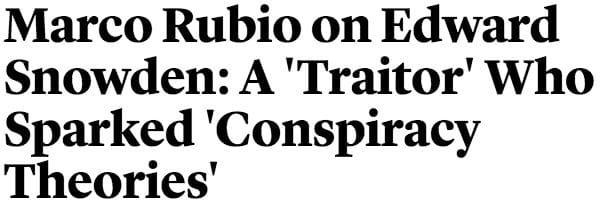Both Parties Agree: Protecting the Fourth Amendment is NOT a Priority

The perception in Washington is that if one side is for something, the other side will stand against it. From health care to immigration reform to job creation and more, the partisan establishments on both sides of the aisle could not appear further apart.
Yet if there is one issue that the political elite in Washington can agree on it is the expansion of the surveillance state, even at the risk of Americans' privacy. Democrats and Republicans have jointly taken several actions in modern history that have expanded the size and scope of the "Deep State."
When WikiLeaks published leaked documents from the CIA in early March, for instance, many Republicans immediately called for an investigation into the identity of the leaker(s) and their prosecution. Meanwhile, many Democrats simply accused WikiLeaks of being an arm of the Russian propaganda machine and overlooked potentially alarming revelations.
But this isn't new, and perhaps no one knows the bipartisan support behind the expansion of the surveillance state more than former NSA contractor and whistle-blower Edward Snowden.
During the Obama administration, several Republicans and Democrats supported the prosecution of Snowden, Chelsea Manning, and others who released classified or sensitive information to the press or groups like WikiLeaks.
After exposing NSA programs that collected massive amounts of data on American citizens, Republicans and Democrats alike seemed more concerned about prosecuting Snowden than addressing the potentially unconstitutional actions of the intelligence community. Source: The Atlantic, 4/25/14

Source: The Hill, 6/10/13

Source: BuzzFeed, 10/13/15

Source: The Atlantic, 11/22/13

Not much has changed under the Trump administration. Trump has called Snowden a traitor and previously voiced his support for the NSA and its wide ability to gain intelligence under the Patriot Act, a law passed with overwhelming bipartisan support in the wake of September 11, 2001.
While Washington is focused on continued investigations into alleged meddling by the Russian government during the 2016 election and Donald Trump's accusations that he was surveilled during the campaign, WikiLeaks' first publication of CIA documents was quickly dismissed on Capitol Hill and in the mainstream media.
A common reaction from members of both parties is that WikiLeaks has damaged national security by publishing "Vault 7." Yet, this fails to acknowledge or address allegations that the CIA lost control of much of its cyber arsenal and some of it was even sold by contractors working with the CIA. What does that mean for national security?
In a post-9/11 America, there is no partisan division on the growth of the surveillance state. Accountability, oversight, and protection of citizens' rights have taken a back seat to security at all costs. Protecting the Fourth Amendment, which protects every Americans' right to privacy, is not a concern for either the Republican or Democratic establishments.
Photo Credit: bluebay / shutterstock.com



